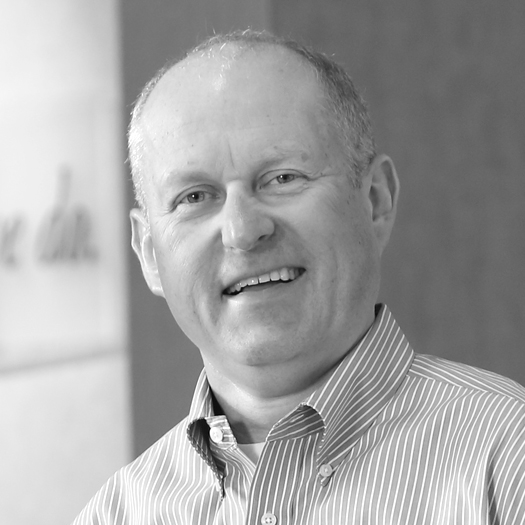Health insurance companies are constantly confronted with the dilemma of how to most effectively engage members in their health and well-being. To address this issue, Finity Inc. has developed a solution that brings business intelligence to the healthcare space.
Finity is a Portland, Oregon-based health intelligence solutions company serving millions of members across the country. Its mission is to empower people to make conscious health decisions and take charge of their health. The company achieves this through its engagement, incentives, and population health management platform, which gathers health intelligence to learn how people behave and uses that data to engage with each member in the way that is most likely to result in a successful health outcome. Finity’s platform works by engaging members using the right communication medium, activity, and reward to motivate people to complete healthy activities that aim to close targeted gaps in care. In doing so, the platform has been proven to lower overall healthcare costs and improve quality measure compliance for health plans across the country.

“The member doesn’t know us as a health intelligence program. They know us as an engaging rewards program provided by their health plan,” says Alexandra MacDonald, Finity’s executive vice president of population health management. “Members are used to getting communications from their health plan that aren’t fun or, frankly, engaging. It’s mostly benefits information, bills, and stuff you don’t want to deal with. This program gives health plans a way to engage members in their health that is fun, simple, and rewarding. People want to participate, and that is the key to success.”
On average, participation rates in Finity’s rewards programs start around 30 percent in the first year of implementation and climb to around 60 percent by the third year, MacDonald says. For Finity, a health plan member counts as a participant if they have engaged in at least one passive and one interactive encounter with the rewards program and closed at least one gap in care after an outreach effort.
MacDonald says the rewards program opt-out rate is only about 5 percent, which indicates that the majority of participants see the program’s reminders to complete healthy activities as a benefit, not a burden.
Part of this success derives from Finity’s meticulous refinement of engagement strategies during a three-year Health Care Innovation grant it received from the Centers for Medicare & Medicaid Innovation. During this time, the company rolled out its Health Intelligence Platform to Medicaid participants in Philadelphia. The program launched in July 2013 with about 260,000 health plan members and, over the course of the grant, achieved cost savings, improved the health plan’s quality measures, and boosted care outcomes for participants.
The company also met the grant’s sustainability requirements, which called for Finity to implement its Health Intelligence Platform with at least four more health plans and evolve it to increase its effectiveness. Finity accomplished this requirement by launching the first state-wide population health management and rewards program for Medicaid members in New Mexico across four managed care organizations in January 2014.
Based on the results of the grant, Finity developed a set of successful strategies it still uses with both public and private health plans.
One of those strategies is having the rewards program focus on activities that are easy to track and measure. Instead of rewarding people for behaviors such as weight loss and smoking cessation, which can be hard to evaluate, Finity focuses on easily measurable activities such as going to the doctor for recommended health screenings or refilling prescriptions for managing chronic conditions, such as asthma.
“Tracking is really important for all our clients because, if you can’t track the activities, you can’t measure the outcomes,” MacDonald says.
The company also found that a rewards program needs to be fun. This means balancing rewards for clinical activities, like doctor visits, with interactive wellness activities. To help strike that balance, Finity offers game-like wellness challenges that encourage participants to focus on one healthy behavior for twenty-one days and have fun in the process. Finity’s programs, such as the Step-Up Walking Challenge, give people weekly goals to strive for. If members meet their goals, they earn reward points that they can redeem for healthy prizes from Finity’s rewards catalog. In private plans, members might compete in wellness challenges against other groups in their company, like a finance team against a customer service team challenge. In public plans, such as state-run Medicaid programs, members could compete against system averages.
By measuring the outcomes across both clinical and wellness activities, Finity proved a correlation between positive behavior changes and the number of points people earned rather than with the number of points they redeemed.
“Most people just like to play the game. So, you’re only going to have about a third of the people who ultimately take that next step and want to redeem points,” MacDonald says. “Many people just get satisfaction from getting healthier.”
Finity’s program requires participants to register before they redeem reward points, which takes fewer than five minutes and allows the company to collect valuable health information that can benefit both the member and the health plan administrator. In fact, each interaction with program participants helps Finity build a more complete Health Intelligence Profile that allows them to target their communications, wellness challenges, health reminders, and rewards to better suit members’ needs. The data also helps health plan leadership hone their member outreach to save money while providing more effective member engagement.
“We help clients save money and improve compliance, and we help members improve their health. It’s a win-win,” MacDonald says. “When you feel better, when you do things that benefit your body, that benefit your mind; it has a holistic improvement on your health. When you’re doing what you should do to take care of yourself—that alone is motivating. And when you’re rewarded for that, it’s even better. It makes health fun, and that’s rewarding for everyone involved.”
Photo by Josh Fitz


